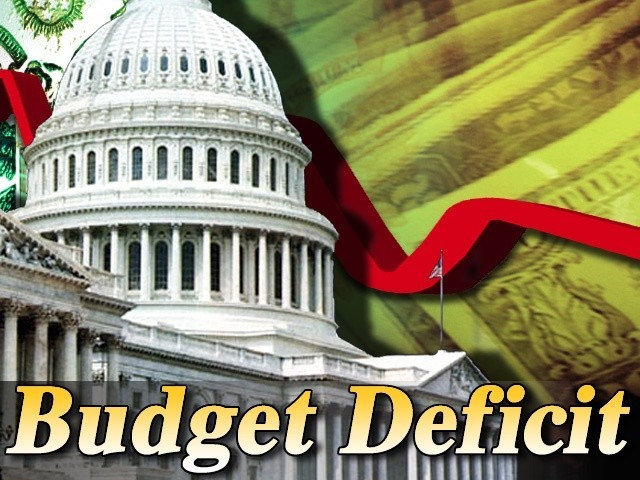The deficit grew by $106.5 billion in March, well below the $203.5 billion added in February, the Treasury Department said Wednesday.
Through the first six months of the year, the deficit has reached $600 billion. That's smaller than the $779 billion racked up in the first six months of the 2012 budget year. The budget year began on Oct. 1.
The deficit for the 2013 budget year is expected to be $845 billion, according to analysis by the independent Congressional Budget Office. That's down from $1.1 trillion in the 2012 budget year and the lowest since 2008.
The CBO estimate may be higher than the actual deficit. It does not reflect across-the-board spending cuts that took effect March 1.
Higher Social Security taxes are helping to reduce the monthly deficit this year. The tax on most American's paychecks is 2 percentage points higher this year, boosting revenue in March by about $10 billion, the CBO said. The tax hike is projected to boost revenue by about $10 billion per month for the rest of the budget year, which ends Sept. 30.
The single biggest factor in March's decline was a lower expected cost for emergency programs launched during the 2008 financial crisis. Ongoing support of mortgage giants Fannie Mae and Freddie Mac was less costly. Treasury also reduced by $26 billion the official price tag of the bank bailouts and a related program to buy toxic mortgage investments.
The government's total receipts for the first half of the budget year are up 12 percent compared with last year. Spending is down 3 percent so far this year.
Earlier Wednesday, President Barack Obama sent Congress a $3.8 trillion spending blueprint that strives to tame runaway deficits by raising taxes on the wealthy and cutting popular benefit programs like Social Security and Medicare.
The White House budget request projects a deficit of $973 billion for the current year, falling to $744 billion in 2014. Even with the president's deficit reductions, the budget projects the red ink would total $5.3 trillion over the next 10 years.
The president's budget projects deficit reductions of $1.8 trillion over the next decade, achieved through higher taxes, reductions in payments to Medicare providers and cutbacks in the cost-of-living adjustments paid to millions of recipients in Social Security and other government programs.
The deficit is the amount the government must borrow when its needs to spend more than it takes in in revenue. The monthly figures are volatile and can be affected by calendar quirks that shift government spending or revenue from one month to another.
The deficit hit a record $1.41 trillion in budget year 2009, which began four months before Obama took office. That deficit was due largely to the worst recession since the Great Depression. Tax revenue plummeted. And the government spent more on stimulus programs.
The budget gaps in 2010 and 2011 were slightly lower than the 2009 deficit as a gradually strengthening economy generated more tax revenue.
President George W. Bush also ran annual deficits through most of his two terms in office after he won approval for broad tax cuts and launched wars in Afghanistan and Iraq.
The last time the government ran an annual surplus was in 2001.

http://accesswdun.com/article/2013/4/260337
